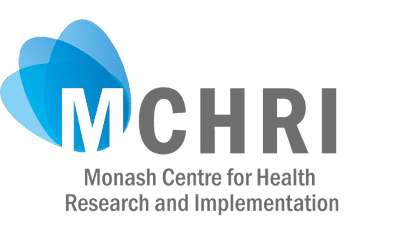AskEM is your personal guide to early menopause
Welcome to Ask Early Menopause
Menopause is early if it happens before age 45 years. Premature ovarian insufficiency (POI) is when your ovaries stop working normally before the age of 40 years. Early menopause (EM) is when menopause happens between the ages of 40 and 45 years. POI affects about 4 in 100 women and EM affects around 12 in 100 women. POI or early menopause can happen spontaneously or be caused by medical treatments such as chemotherapy, radiotherapy or surgical removal of both ovaries. Women tell us "Early menopause changes you. You physically have changed. You emotionally change. You psychologically change".
We developed this app 'with women for women' to help you find trustworthy information of the highest quality from leading experts to help you learn about the condition and support you with tools including a personal dashboard to help you track your symptoms, find the healthiest possible lifestyle and decide on the best management options for you.
AskEM is your personal guide to early menopause
Welcome to Ask Early Menopause
Menopause is early if it happens before age 45 years. Premature ovarian insufficiency (POI) is when your ovaries stop working normally before the age of 40 years. Early menopause (EM) is when menopause happens between the ages of 40 and 45 years. POI affects about 4 in 100 women and EM affects around 12 in 100 women. POI or early menopause can happen spontaneously or be caused by medical treatments such as chemotherapy, radiotherapy or surgical removal of both ovaries. Women tell us "Early menopause changes you. You physically have changed. You emotionally change. You psychologically change".
We developed this app 'with women for women' to help you find trustworthy information of the highest quality from leading experts to help you learn about the condition and support you with tools including a personal dashboard to help you track your symptoms, find the healthiest possible lifestyle and decide on the best management options for you.
Topics to explore...
Ask
You will see a list of questions that you could ask your doctor or health professional. Select the questions most relevant for you that you would like to ask during your next appointment.
Explore questionsYou will be prompted to answer a few simple questions. Based on your answers we will provide some guidance on the next steps to take.
Take self-assessmentIn this section you will find information on how to manage the symptoms as well as recommendations that may help you optimise your lifestyle.
Let's get startedManage my early menopause
You will find information on how to manage your lifestyle with early menopause and different options on how to help reduce the symptoms.
Learn moreSurgical menopause
Menopause means the final menstrual period. The average age of menopause is around 51 years, but most women will start to notice menopausal symptoms from around 47 years. This may be noticed as the onset of hot flushes, night sweats or vaginal dryness or a change in menstrual periods to more infrequent and sometimes heavier menstrual bleeding. Removal of both ovaries (bilateral ophorectomy) before the normal menopause is called “surgical menopause”.
Learn moreEarly menopause due to chemotherapy and radiotherapy
Chemotherapy is usually administered as part of cancer treatment but may also be given to women with severe connective tissue disorders such as systemic lupus erythematosus or kidney disease such as Wegener’s granulomatosis. Survival rates for many cancers in women of reproductive age are increasing. However, many treatments used to combat the disease carry a substantial risk for future infertility. Chemotherapy is toxic to the ovaries causing loss of eggs and destruction of the supporting ovarian tissue. This may cause temporary cessation of menstrual periods or early menopause which can develop quickly or gradually.
Learn moreQuestions to discuss with your doctor
You will see a list of questions that you could ask your doctor or health professional. Select the questions most relevant for you that you would like to ask during your next appointment.
Get startedSelf-assessment
You will be prompted to answer a few simple questions. Based on your answers we will provide some guidance on the next steps to take.
Take QuizManage my early menopause
You will find information on how to manage your lifestyle with early menopause and different options on how to help reduce the symptoms.
Learn moreSurgical menopause
Menopause means the final menstrual period. The average age of menopause is around 51 years, but most women will start to notice menopausal symptoms from around 47 years. This may be noticed as the onset of hot flushes, night sweats or vaginal dryness or a change in menstrual periods to more infrequent and sometimes heavier menstrual bleeding. Removal of both ovaries (bilateral ophorectomy) before the normal menopause is called “surgical menopause”.
Learn more
AskEM
Ask Early Menopause is your personal guide to early menopause.
Disclaimer
This information is informed by multidisciplinary clinical expertise in menopause and early menopause. The Monash Centre for Health Research and Implementation (MCHRI) and Monash University provide the AskEM application (the app). The terms of use & privacy policy apply to your use of the app, and we encourage you to read them ... Read more
All rights reserved © 2025
Powered by

 Follow us on Facebook
Follow us on FacebookGet in touch with us at info.mchri@monash.edu